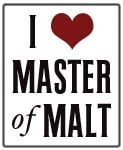 Connemara
ConnemaraPeated Irish Single Malt
40% abv
£25
$65(CAD)
$40(USD)
The term 'whisky' is an Anglicisation of the gaelic term 'uisge beatha'. For reasons unknown to me, the spelling of the term in the English language is 'whisky' in Scotland and Canada, and 'whiskey' in America and Ireland. Although there are slight variations in recipe, both spellings refer to a grain-based distilled spirit, and in spite of the fact that some wealthy businessmen are working to call Indian 'whiskey', rum, and horse piss 'WHISKY', this is the way it should, and hopefully will, always be. Go grain, or go home.
It is said that Ireland was once home to 2,000 whiskey distilleries, but by 1980, this had been reduced to 2, both owned by a single company. Interested in more information? Get THIS book.
Studying at Harvard Business School in 1970, John Teeling began an investigation into whether or not it would be possible to revive the fortunes of the Irish whiskey business. His research caught the passion of Willie McCarter at MIT and 17 years later, with the help of John Power, they raised £3million and purchased the Ceimic Teo distillery in Dundalk, a vodka producing plant. They also purchased Locke's Kilbeggan Distillery in 1988 to use as a storage site for the future Cooley whiskies. In 1989, two pot stills were installed and production commenced.
Economic difficulties hit them almost immediately but were resolved through the involvement of independent investors and bright ideas rather than Cooley just being swallowed up by Irish Distillers (this did almost happen, however, but was deemed illegal by the Competition Authority). One thing that helped the economic situation of the distilling company was to enter the 'retailer's-own' sector and begin producing in-house brands for British supermarkets Sainsbury's and Waitrose.
Cooley's has a capacity to produce 10million litres of whiskey per year and currently has a wide range of different releases: a single grain called Greenore, and blends Kilbeggan, Inishowen and Millar's Special Reserve. They also produce three different single malt ranges: Locke's, Tyrconnell, Connemara. Knappogue Castle is also sourced from Cooley distillery from 1990-1992, and Jon, Mark, and Robbo's Smooth, Sweeter One uses Cooley malt whiskey.
Cooley's malt whiskies are unique from most Irish whiskies in that they are distilled only twice, rather than the traditionally Irish triple distillation. Connemara is even more unique in that it is the only Irish peated whiskey. It was officially launched in 1996.
TASTING NOTES:
Honey and lemon, green grapes, skin cream/lotion. Very fresh on the nose. The peat is in there, but it is all so perfumed, estery, and free of the associations that often appear with peat smoke that it could go unnoticed. Apple crumble, margarine, and a touch of animal hide.
Okay, well the smoke will not go unnoticed on the palate, but it is so clean, and surrounded by floral sweetness, that to compare it to a Scottish whisky would not quite be fair (to either). Peated barley at the heart of the flavours, grassy, and increasingly drying. Oak and almonds.
SUMMARY:
A unique peated whiskey experience. Very drinkable, even quaff-able, with sweetness, and an interesting summer weeds type of presence. And plenty of peat, but don't expect a peat beast; this is driving-through-the-country window-seat-peat.
Malt Mission #101
Malt Mission #103
Malt Mission #104
Malt Mission #105
Malt Mission HOME





No comments:
Post a Comment